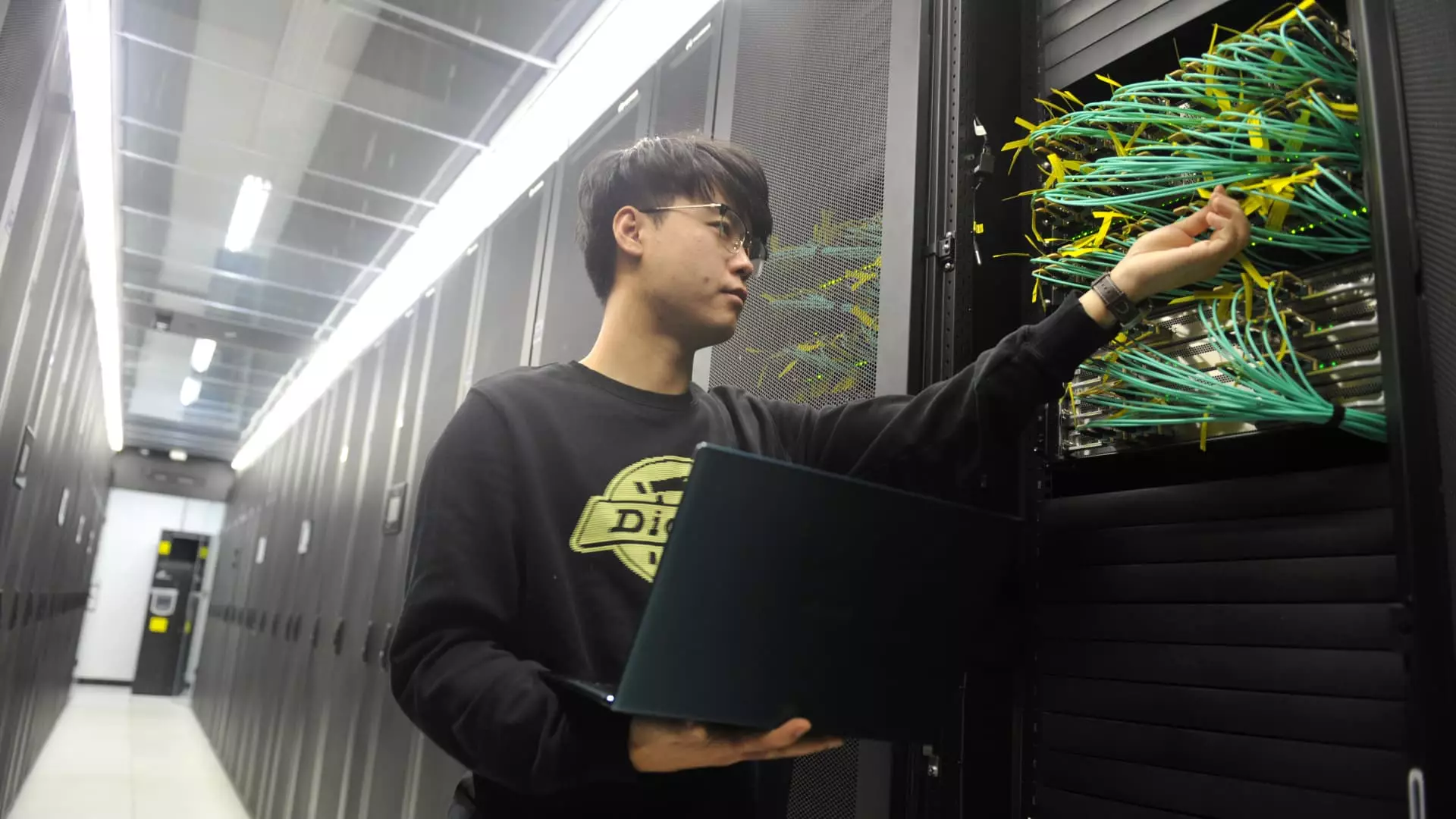In the face of simmering U.S.-China trade tensions, which have become a persistent backdrop in global economics, a counter-narrative is emerging from China’s technology sector. While analysts cite high-stakes tariffs and geopolitical squabbles, there is a blossoming optimism rooted in China’s strategic pivot toward generative artificial intelligence (AI). Such advancements are not mere whims; they represent a consolidated effort by Beijing to not only buffer the impacts of tariff wars but to leap ahead in a sector that is increasingly critical to economic growth and global competition. The narrative that China is simply running on hopes of resentment and retaliation misses a crucial point: the opportunistic face of adversity can drive surprising advancements.
AI as a Catalyst for Corporate Growth and Innovation
Take for instance the rise of technologies like DeepSeek, which are reshaping the landscape of what is possible within software and AI applications. Companies such as Kingsoft Office and Kingdee are seizing the moment to incorporate AI features that are transforming their business models and creating robust ecosystems. These transformations are not merely reactive; they signify a strategic investment in the future, with Kingsoft reporting an impressive surge to almost 20 million active users in a market that is increasingly interested in Chinese alternatives to Western software. The critical question becomes: Can these companies truly leverage AI to sustainably enhance profitability amid harrowing tariffs?
It appears they can, at least according to Bernstein’s analysis, which indicates that AI’s integration into corporate strategies could yield significant cost savings. This growth potential, while initially spurred on by state support, represents a genuine shift toward innovative capabilities that align with global demands. The transformation is emblematic of how adversity can breed not just survival, but actual success.
The Government’s Role: A Double-Edged Sword
It is essential to analyze the role of the Chinese government in this AI-driven revival. As analysts suggest, Beijing is likely to use generative AI as a cornerstone of its strategy to offset the economic upheaval caused by U.S. tariffs. The support from the state can be both a blessing and a potential curse. While funding and initiatives can help bolster growth, they also may result in an ecosystem that is overly reliant on government intervention. As businesses like Kingdee openly pivot toward AI-driven models, one wonders if they are truly fostering organic growth or simply catering to a government that has ambitions of tech dominance.
Yet one thing remains clear: the Chinese government’s ambitions may pave the way for AI innovations that are fundamentally distinct from their Western counterparts. This ideological detour raises discussions about the ethical implications and long-term viability of such an ecosystem. If done correctly, the results might form a formidable challenge to Western tech giants.
U.S. Response: A Dangerous Game
The response from the U.S. has largely been to escalate tariffs further. This never-ending tit-for-tat fundamentally ignores the long-term ramifications such economic hostilities may have. Goldman Sachs and Citibank have already voiced concerns regarding reduced growth forecasts for China, but this myopic view fails to consider the potential of a self-sufficient Chinese tech sector. The focus on tariffs as a solution can lead to further entrenchment of the very issues they aim to diminish—reduced cooperation and innovation in critical technology sectors.
The irony here is striking. By overplaying their hand, the U.S. risks forfeiting the critical partnerships that might have fostered cooperation over isolation. Companies that could have benefitted from partnerships in AI and cloud computing are instead reinventing themselves in isolation. The question now is whether this approach ultimately cripples American tech competitiveness in an increasingly digital world.
Emerging Cloud Computing Landscape Amidst Tariff Tribulations
As tariffs spiral upward, sectors that show resilience are predominantly in cloud computing and internet data centers (IDC). Companies like China Mobile and GDS are attracting attention as they navigate these turbulent waters with relative ease. The demand for cloud services shows no signs of decline, driven by an ever-increasing need for computing power.
This resilience is a clarion call for potential investors to redirect their focus toward sectors less vulnerable to trade talks and tariffs. In a world of increasing digitalization, how companies in these sectors innovate will serve as a litmus test for the global economy’s reaction to persistent political disputes.
China’s focus on generative AI and cloud computing represents not just a survival strategy but a bold step into the future, suggesting that even in the darkest economic times, innovation can and will flourish.

